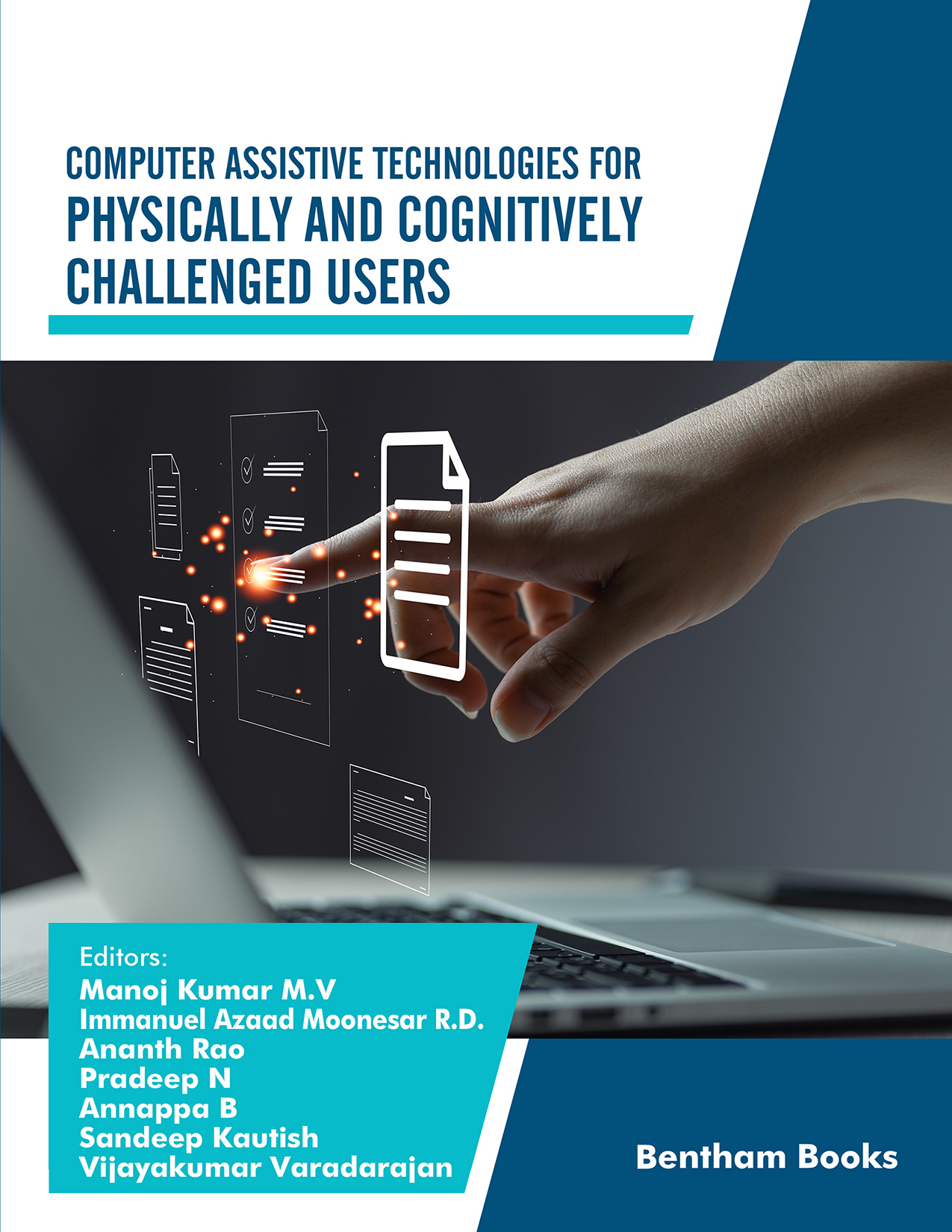Introduction
Computer Assistive Technologies for Physically and Cognitively Challenged Users focuses on the technologies and devices that assist individuals with physical and cognitive disabilities. These technologies facilitate independent activity and participation, serving to improve daily functional capabilities.
The book features nine chapters that cover a wide range of computer assistive technologies that give readers an in-depth understanding of the available resources to help the elderly or individuals with disabilities. The topics covered in the book include 1) The category and ontology of assistive devices, 2) Web accessibility and ICT accessibility for persons with disability (PWD), 3) Assistive technologies for blind and visually impaired people, 4) Assistive technologies for home comfort and care, 5) Assistive technologies for hearing impaired people using Indian sign language synthetic animations, 6) Augmentative and alternative communication/hearing impairments, 7) Accessibility innovations to help physically disabled users, 8) Adhesive tactile walking surface indicators for elderly and visually impaired people mobility, 9) future of assistive technologies.
This book serves as a textbook resource for students undertaking modular courses that require learning material on computer assistive technology. It also serves as a reference for graduate level courses in disability studies, human-computer interaction, gerontology and rehabilitation engineering. Researchers working in the allied fields intersecting computer science, medicine and psychology will also benefit from the information provided in the book.
Audience
Students undertaking modular courses that require learning material on computer assistive technology; graduate students in disability studies, human-computer interaction, gerontology and rehabilitation engineering. Researchers working in the allied fields intersecting computer science, medicine and psychology

